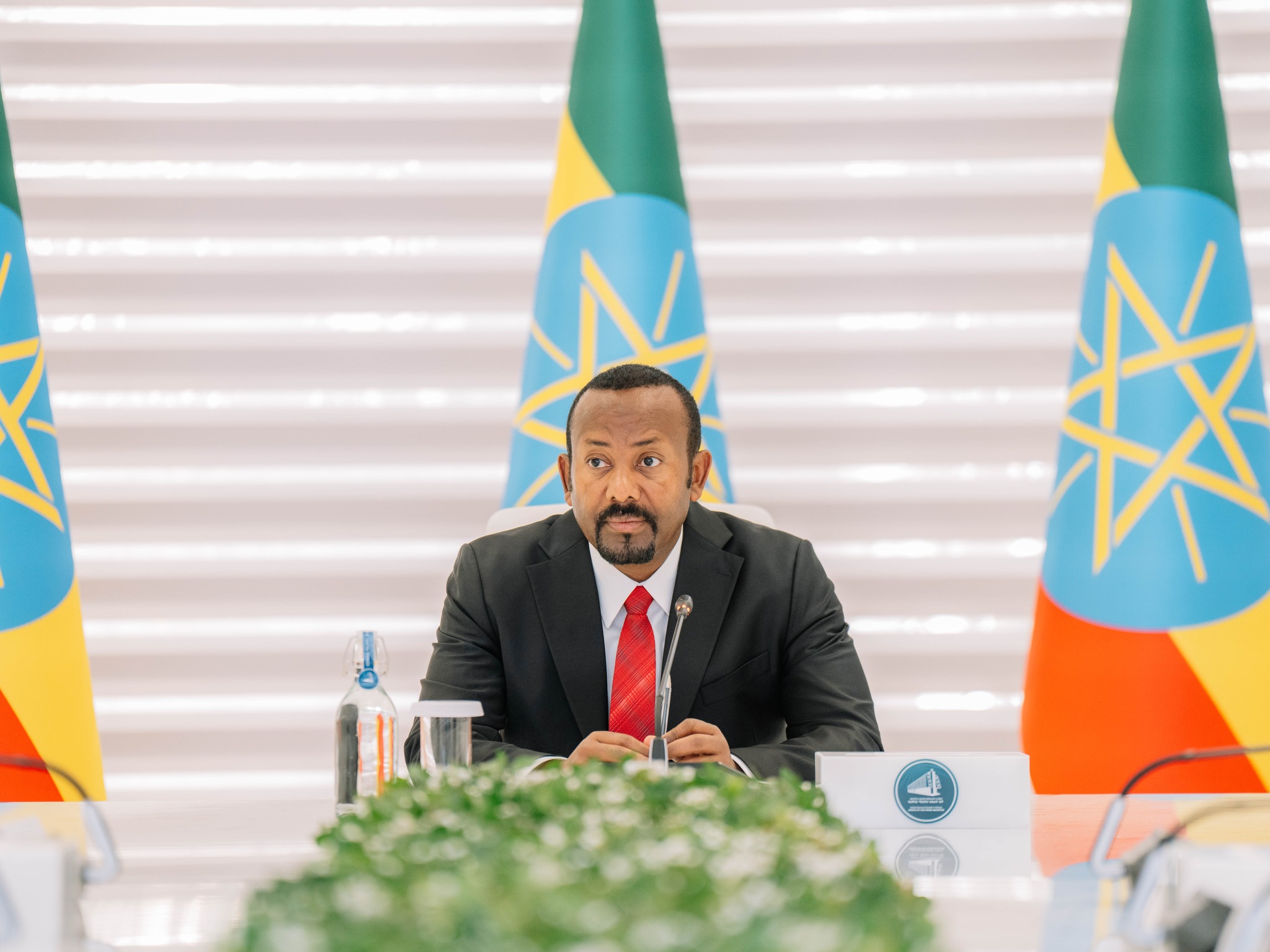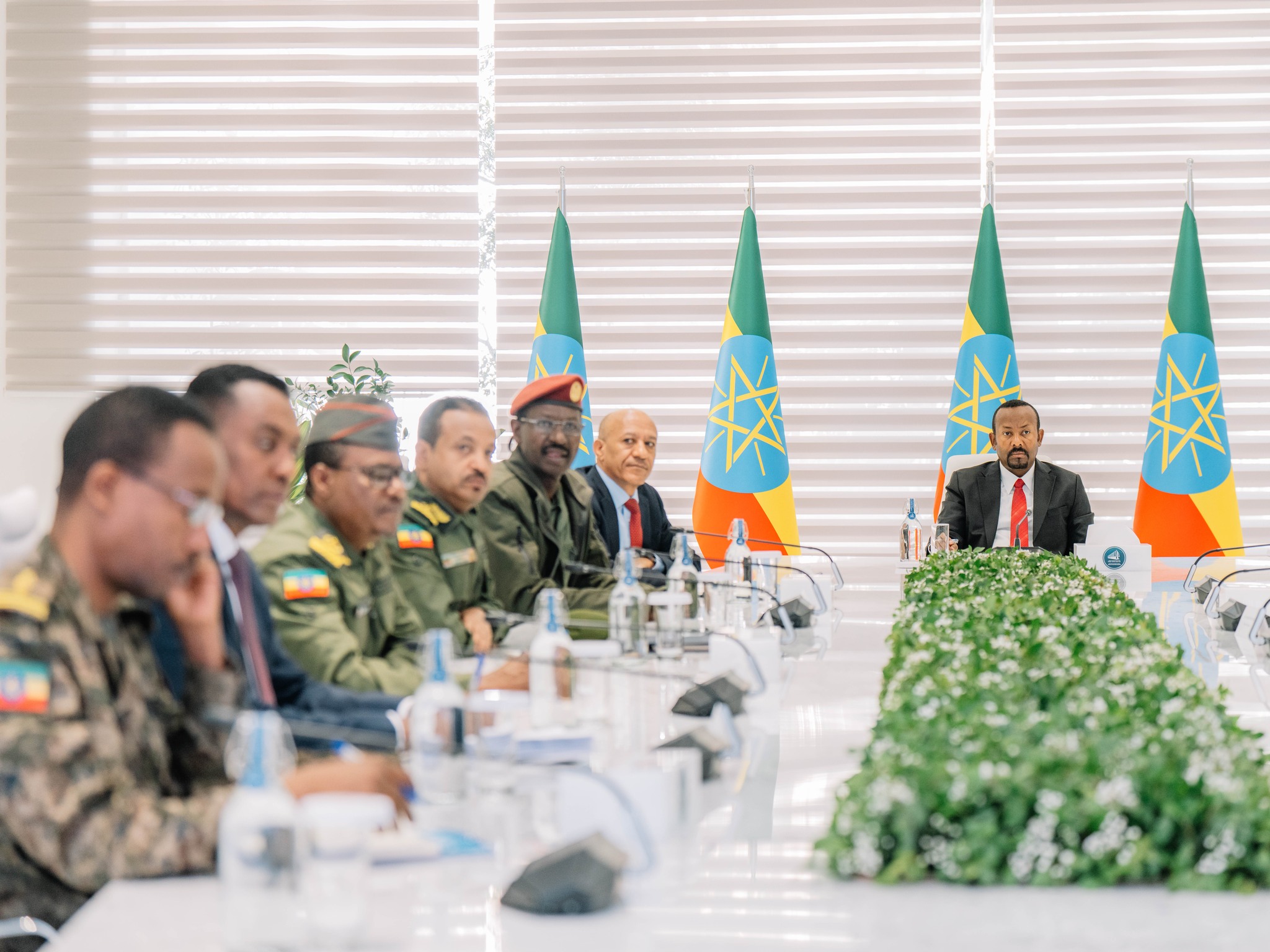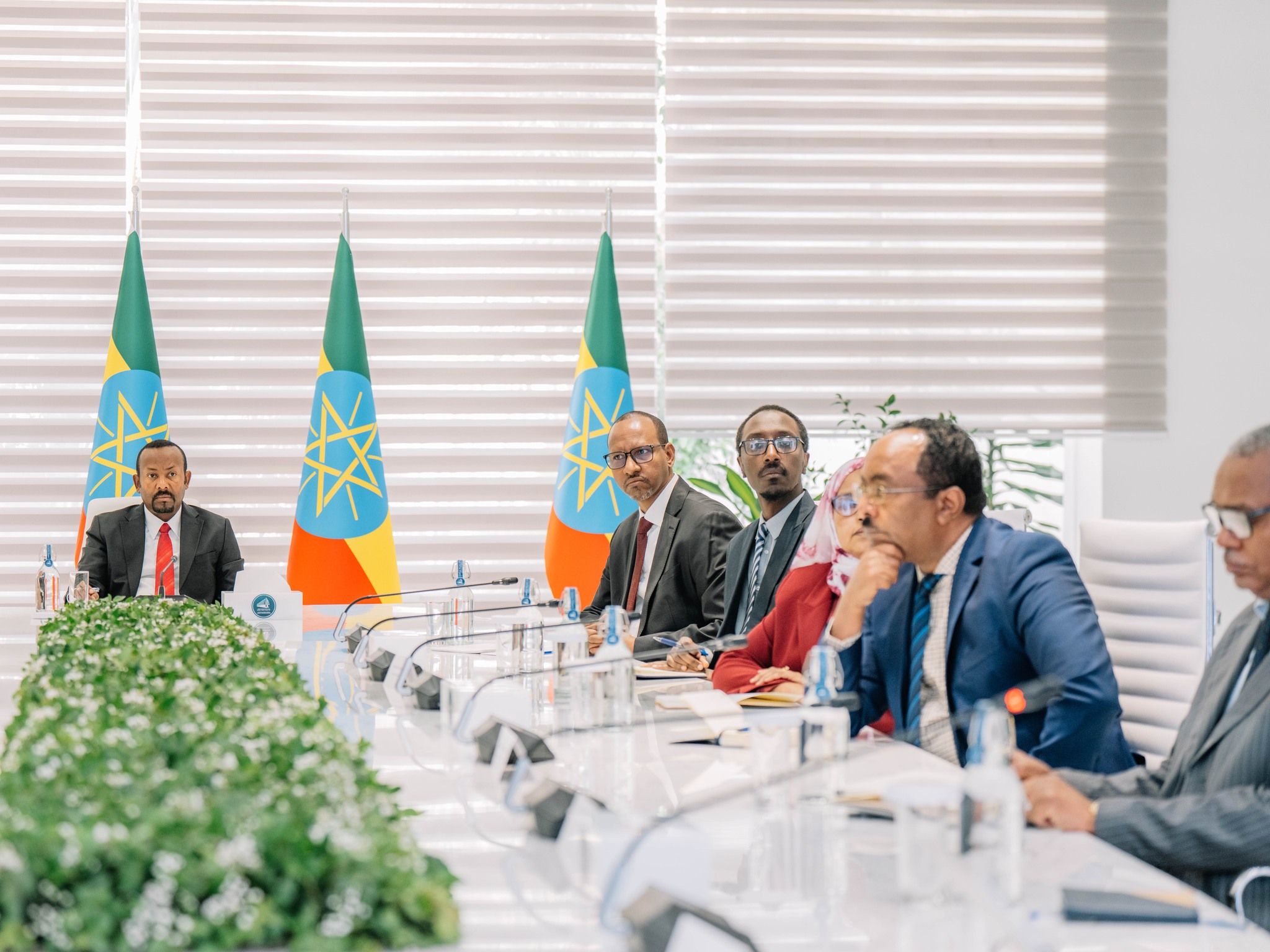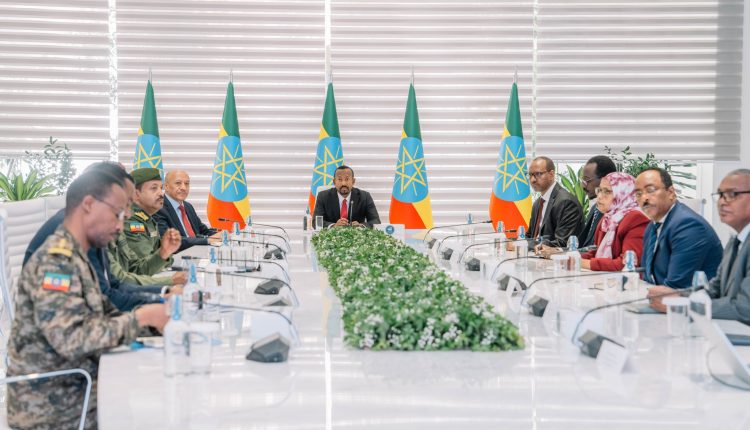National Security Council assesses security and reform progress, outlines next steps
Addis Ababa, April 9, 2025 (FMC) — Ethiopia’s Intelligence and National Security Council announced Tuesday that the country’s reform efforts are showing measurable progress in restoring peace, strengthening state institutions, and positioning the country more firmly in regional and global affairs.
Presided over by Prime Minister Abiy Ahmed, the Council reviewed the national, regional and global situation during its meeting held today, 9th April 2025.

The Council’s comprehensive review of national, regional, and global dynamics highlighted achievements in political and economic reforms, improvements in security, and outlined directives to address emerging threats.
The Council stated that Ethiopia’s long-standing political, economic, and diplomatic challenges are gradually being reversed through ongoing reforms.
It noted that increased cooperation with international financial institutions has supported the country’s economic restructuring, while Ethiopia’s influence in global forums continues to grow. Political and economic stability, in turn, is reinforcing national peace.
According to the Council’s statement, improvements in public security were observed in various parts of the country. In Tigray region, the Pretoria Peace Agreement has facilitated the return of government services, the resumption of economic and social activities, and infrastructure rehabilitation. In the Amhara and Oromia regions, the reintegration of former militants, enhanced law enforcement, and strengthened regional security structures have contributed to better stability. The movement of goods and people has also improved, and planned economic activities have resumed.
Despite these gains, the Council cautioned that armed groups and conspiratorial networks continue to pose challenges. It identified three categories of actors: those who pursue political aims through violence and criminality; those collaborating with internal and external adversaries to disrupt governance and manipulate the economy; and those waging disinformation campaigns through the mainstream media and social media platforms. These groups, according to the Council, exploit legal and religious institutions, weaponize economic hardship, and use propaganda to stir unrest.
The Council emphasized that these actors’ capabilities are eroding due to coordinated government action and public rejection of violence.

The statement indicated that the Council directed federal and regional institutions to intensify law enforcement, bolster public awareness, and ensure accountability through legal means. Relevant government institutions were instructed to dismantle organized criminal networks, tackle contraband and corruption, and regulate the movement of goods, people, and foreign currency.
In line with the country’s development agenda, the Council urged stakeholders to ensure uninterrupted delivery of essential services, including education and healthcare, and to complete seasonal agricultural and infrastructure programs efficiently. It also stressed the importance of accelerating civil service reform, boosting productivity, and expanding job creation—especially for youth.
The Council reaffirmed the government’s unwavering readiness to resolve differences through peaceful political dialogue, noting a growing number of militants are choosing reconciliation. It called for continued use of both formal and traditional mechanisms to support reintegration and community acceptance, while law enforcement would remain necessary against those who persist in armed resistance.

Turning to international developments, the Council reviewed the implications of global economic instability, shifting geopolitical alliances, terrorism, and rising cyber threats. It reiterated Ethiopia’s commitment to protecting its sovereign interests, including pursuit of access to sea routes, through diplomatic and legal channels.
The Council emphasized Ethiopia’s constructive role in promoting peace and development in the Horn of Africa, and its determination to maintain an independent and principled foreign policy amid global uncertainty. It commended the ongoing work of national security institutions and urged them to continue safeguarding the country’s interests and reform process.
Through its statement, the Council also thanked international partners for their support and called for stronger cooperation in recognition of Ethiopia’s role in ensuring peace and stability regionally and globally.
Reaffirming that violence has failed to yield results, the Council called on remaining armed actors to choose the path of peace.
It concluded by asserting that Ethiopia’s trajectory toward prosperity is irreversible, and that coordinated national efforts will continue to reinforce security, stability, and growth.

